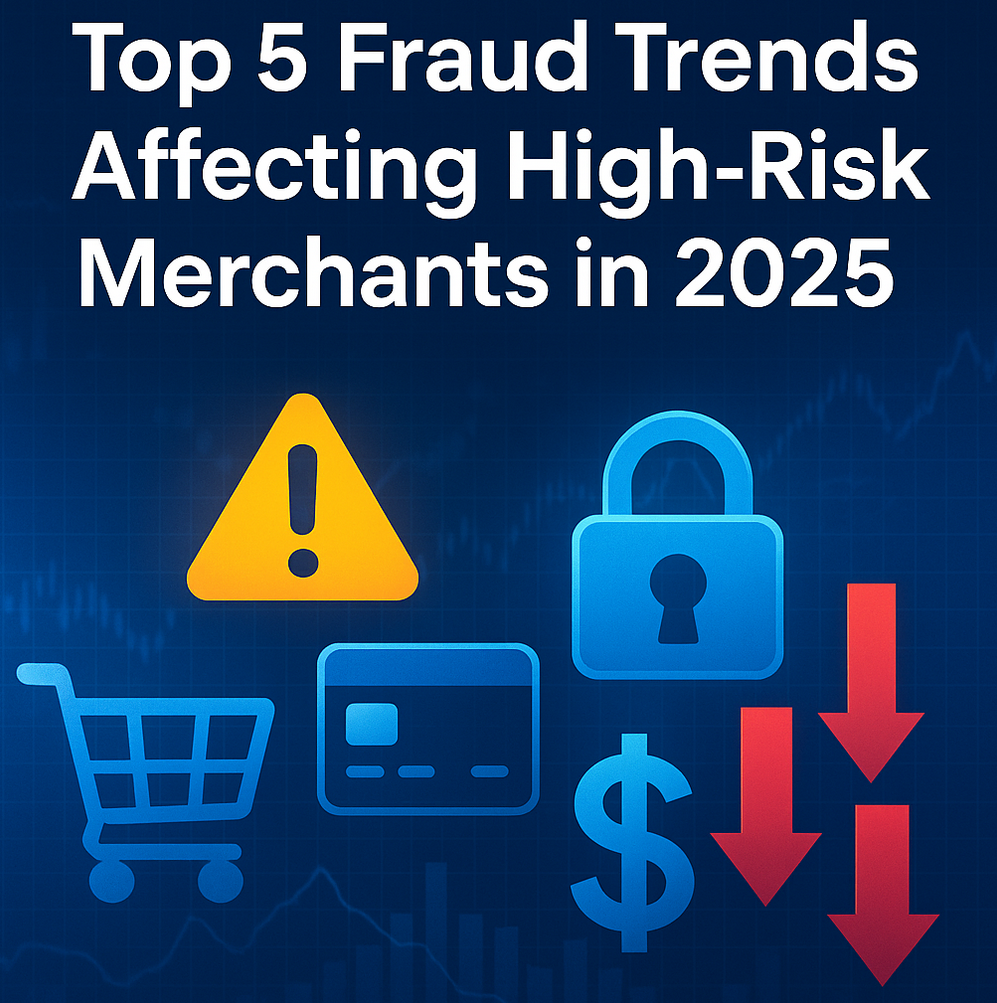
As we navigate through 2025, high-risk merchants face a rapidly evolving fraud landscape. From AI-driven scams to rising chargeback rates, the challenges are growing more complex and costly. In 2024 alone, businesses lost $8.9 billion to chargebacks, a figure projected to rise as fraud tactics become more sophisticated.
For e-commerce merchants, SaaS companies, crypto exchanges, and other high-risk industries, staying ahead of these fraud trends is crucial to protect revenue and maintain customer trust. This article explores the top 5 fraud trends impacting high-risk merchants in 2025 and how innovative solutions like avoided.io can safeguard your business with real-time chargeback prevention and fraud management.
Fraudsters are increasingly leveraging Artificial Intelligence (AI) to conduct highly convincing scams. These sophisticated attacks are designed to deceive even the most cautious businesses and consumers, from AI-generated phishing emails to deepfake videos and voice impersonations. AI also creates synthetic identities that combine real and fake information, enabling fraudsters to bypass traditional identity verification systems.
Friendly fraud occurs when customers dispute legitimate transactions, often claiming they did not receive a product or did not authorise the purchase. This type of fraud is particularly challenging for high-risk merchants, as it’s difficult to prove intent. In 2025, friendly fraud is expected to increase as consumers become more familiar with chargeback processes and as subscription-based models gain popularity.
Subscription renewal scams are on the rise, particularly affecting SaaS companies and digital content providers. Fraudsters manipulate recurring payments and initiate chargebacks by falsely claiming unauthorised renewals or by exploiting trial periods. This trend is fueled by the growing popularity of subscription services, making it easier for scammers to dispute recurring charges.
With the continued growth of global e-commerce, cross-border fraud is becoming more prevalent. Fraudsters exploit differences in regulations, currency conversions, and security standards between countries to perpetrate scams. This is particularly challenging for high-risk merchants dealing with international transactions, as they face increased risks of unauthorised chargebacks and currency-related disputes.
The rapid growth of cryptocurrency adoption and blockchain technology has led to new fraud schemes, including crypto wallet hacks and NFT scams.
avoided.io’s chargeback prevention solutions are specifically designed for transactions made via credit or debit cards. It does not support chargeback prevention for crypto-to-crypto transactions.
To safeguard revenue, high-risk merchants must proactively address fraud trends. Request a Demo to discover how avoided.io can protect your business.
The Payments Association
St Clement’s House
27 Clements Lane
London EC4N 7AE
© Copyright 2024 The Payments Association. All Rights Reserved. The Payments Association is the trading name of Emerging Payments Ventures Limited.
Emerging Ventures Limited t/a The Payments Association; Registered in England and Wales, Company Number 06672728; VAT no. 938829859; Registered office address St. Clement’s House, 27 Clements Lane, London, England, EC4N 7AE.







Log in to access complimentary passes or discounts and access exclusive content as part of your membership. An auto-login link will be sent directly to your email.
We use an auto-login link to ensure optimum security for your members hub. Simply enter your professional work e-mail address into the input area and you’ll receive a link to directly access your account.
Instead of using passwords, we e-mail you a link to log in to the site. This allows us to automatically verify you and apply member benefits based on your e-mail domain name.
Please click the button below which relates to the issue you’re having.
Sometimes our e-mails end up in spam. Make sure to check your spam folder for e-mails from The Payments Association
Most modern e-mail clients now separate e-mails into different tabs. For example, Outlook has an “Other” tab, and Gmail has tabs for different types of e-mails, such as promotional.
For security reasons the link will expire after 60 minutes. Try submitting the login form again and wait a few seconds for the e-mail to arrive.
The link will only work one time – once it’s been clicked, the link won’t log you in again. Instead, you’ll need to go back to the login screen and generate a new link.
Make sure you’re clicking the link on the most recent e-mail that’s been sent to you. We recommend deleting the e-mail once you’ve clicked the link.
Some security systems will automatically click on links in e-mails to check for phishing, malware, viruses and other malicious threats. If these have been clicked, it won’t work when you try to click on the link.
For security reasons, e-mail address changes can only be complete by your Member Engagement Manager. Please contact the team directly for further help.